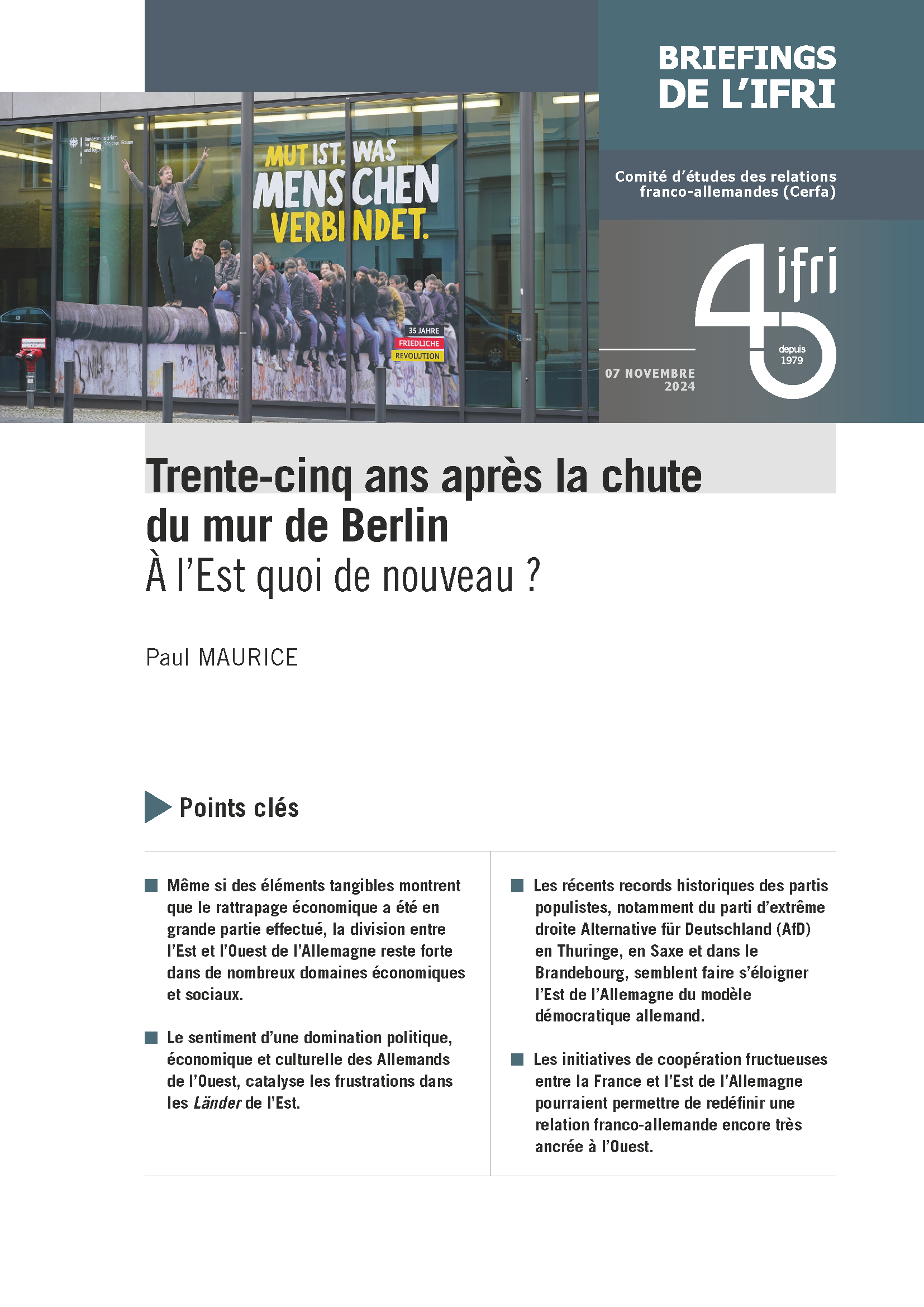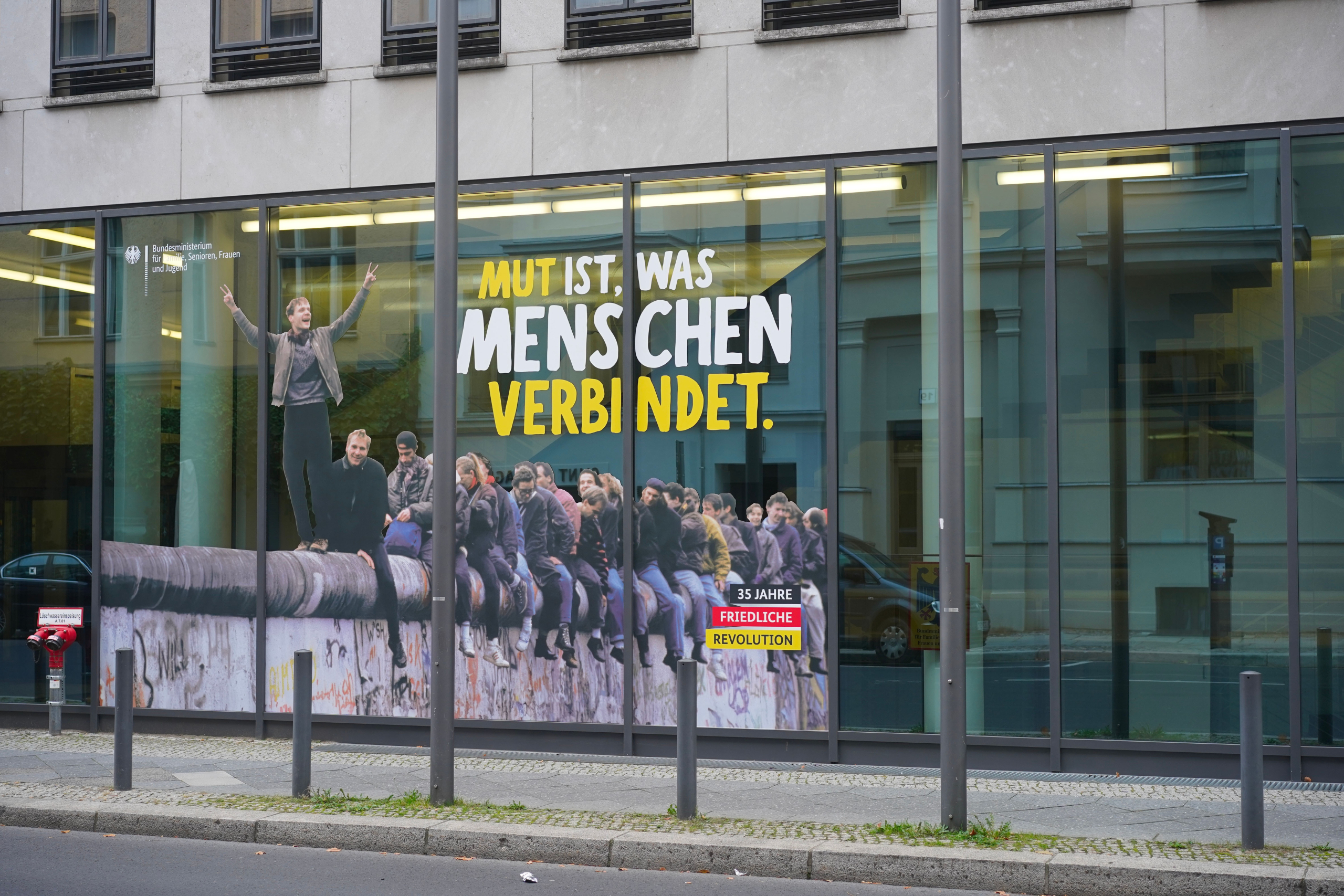Thirty-five years after the fall of the Berlin Wall: what’s new in the East?

As we celebrate the 35th anniversary of the fall of the Berlin Wall on November 9, 2024, let’s start from the premise that the Berlin Wall did not “fall” on the night of November 9, 1989.

The process that led to its “opening” was based on the mobilization of GDR citizens aspiring to democracy, and intensified in the autumn of 1989, culminating on November 9 and paving the way for German unification on October 3, 1990. Thirty-five years after the fall of the Berlin Wall, is it still time to celebrate in East Germany?
- Even if there are tangible signs that economic catch-up has largely been achieved, the division between East and West Germany remains strong in many economic and social areas.
- The sense of political, economic and cultural domination by West Germans is catalyzing frustration in the eastern Länder.
- Recent historic highs for populist parties, notably the far-right Alternative für Deutschland (AfD) in Thuringia, Saxony and Brandenburg, appear to be driving eastern Germany further away from the German democratic model.
- Successful cooperation initiatives between France and East Germany could help redefine a Franco-German relationship that is still very much rooted in the West.
Paul Maurice is Secretary General of The Study Committee on Franco-German Relations (Cerfa) at Ifri, where he focuses on German domestic policy, Franco-German relations within the European Union, and German foreign and security policy.
This publication is available in French (pdf): "Trente-cinq ans après la chute du mur de Berlin : à l’Est quoi de nouveau ?"

Available in:
Themes and regions
Share
Download the full analysis
This page contains only a summary of our work. If you would like to have access to all the information from our research on the subject, you can download the full version in PDF format.
Thirty-five years after the fall of the Berlin Wall: what’s new in the East?
Related centers and programs
Discover our other research centers and programsFind out more
Discover all our analysesBundeswehr: From Zeitenwende (historic turning point) to Epochenbruch (epochal shift)
The Zeitenwende (historic turning point) announced by Olaf Scholz on February 27, 2022, is shifting into high gear. Financially supported by the March 2025 reform of Germany’s “debt break” and backed by a broad political and societal consensus to strengthen and modernize the Bundeswehr, Germany's military capabilities are set to rapidly increase over the coming years. Expected to assume a central role in the defense of the European continent in the context of changing transatlantic relations, Berlin’s military-political position on the continent is being radically transformed.
Merz’ European Policy-making: The End of the ‘German Vote’?
Friedrich Merz’s European ambition is to turn Germany, long seen as hesitant into a leading actor within the European Union (EU). To that end, he has pledged to end the “German vote,” a phenomenon that epitomizes the paradox of a country both indispensable and frequently absent from European decision-making.

Securing critical raw material (CRM) value chains – a prerequisite for Europe’s technological resilience
At the heart of economic security, technological resilience is a backbone of the European Union’s (EU) competitiveness. The EU’s energy and digital transitions depend on critical raw materials (CRM).

Reconciling competitiveness and demographic change: a Franco-German imperative
France and Germany are facing parallel demographic shifts that could reshape the future of their economies and their social models. These shifts reflect broader European patterns but are magnified by the central role both nations play in EU governance and competitiveness.










